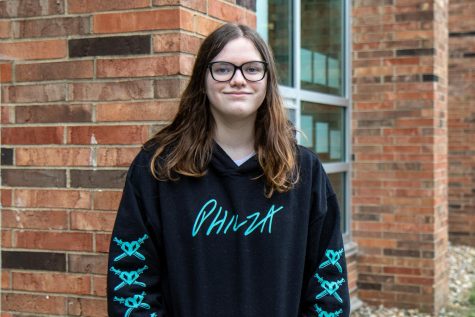Beyond the page: What I learned from my writing class
Luke Krchak ‘21 summarizes six writing tips from the creative writing class he took last trimester.
In the digital age, writing is one of the most crucial and overlooked skills. With a few words, an author can create an entire world. In the creative writing class I took online from City High English teacher Mrs. Ali Borger-Germann, we spent the first few weeks practicing different forms of creativity to draw out the creativeness in our writing, before spending a few weeks on both poetry and fiction. At the end of every class, we would read a poem called “Wild Geese” By Mary Oliver, to inspire creativity in our lives and in our writing. Here are 6 tips to inspire you to continue writing and improve your craft.
Fiction:
Tip #1: Let your readers experience the journey of your characters
Summarizing is less effective than writing a scene because writing a scene lets the reader experience what the characters are going through, so have your writing feel more like a movie. Showing rather than telling is the age-old writing tip, but it is one of the most important writing tips to level up your work. You would much rather travel abroad than have someone describe their trip, so why not have your reader join your characters on their journey?
Tip #2: Expand your characters by showing their thoughts
Writing the internal thoughts of your characters can add that extra dimension that makes your character more dynamic and human. This goes beyond the external dialogue of your characters. It shows what your character is thinking, and it can be a way for you characters to speak to themselves.
Tip #3: Begin your stories with a bang
Dropping your readers into the action right away is one of the best ways to start a story. You want the reader to experience the world just as much as the characters and their stories, and jumping right in allows them to do so without getting told what happened before your story. This is another good way to use Tip #1, while also compelling the reader to continue reading your story.
Poetry:
Tip #4: From Abstract to Concrete
A meme poem is something you have to look deeper into to find its meaning, so it is more abstract. It also allows the reader to imagine what they think is happening in the poem. Like memes, these have a lot more metaphorical meaning and give the reader the chance to fill in their own meanings based on their own experiences. “The world is small, but my mind is large” would be an example of a meme poem’s open meaning.
A museum poem is something you can look at and say “Oh that’s what that means.” These are a lot more direct and less open to interpretation. Museum poems have a very distinct and known definition of what is happening and what the poem means. Written more like a fiction piece, it follows a narrative, and the reader knows exactly what’s happening.
Tip #5: Liven up the senses of your readers
Similar to fiction writing, you want your readers to experience and be a part of your poetry. One way to do so is by adding sensory details. Sensory details are the details you add to show the five senses: sight, touch, smell, taste and sound. With sensory details, you can have the reader connect with your poetry by being able to smell something scrumptious walk by or to feel the coarse sand sift through their fingers. Capture the senses and bring that extra personal connection to the readers.
Tip #6: Knowing when to end a line
Knowing when to end a line is crucial in poetry because it makes or breaks your poem. Using line breaks can end a line so that it rhymes with the line above or below it. You could also emphasize a word to show its importance or that it has a double meaning. Ending a line is also important for slam poetry or when you read your poetry so that you can keep a rhythm going.
Your donation will support the student journalists of West High School. Your contribution will allow us to purchase Scholarship Yearbooks, newsroom equipment and cover our annual website hosting costs.

Luke Krchak is an online reporter. This is his third year on staff. When he is outside of school he is either writing the next mystery/sci-fi novel, or...

(she/her) Cassandra Michaels is a senior at West. This is her second year on the staff for the online publication as an artist. When she isn't busy she...



